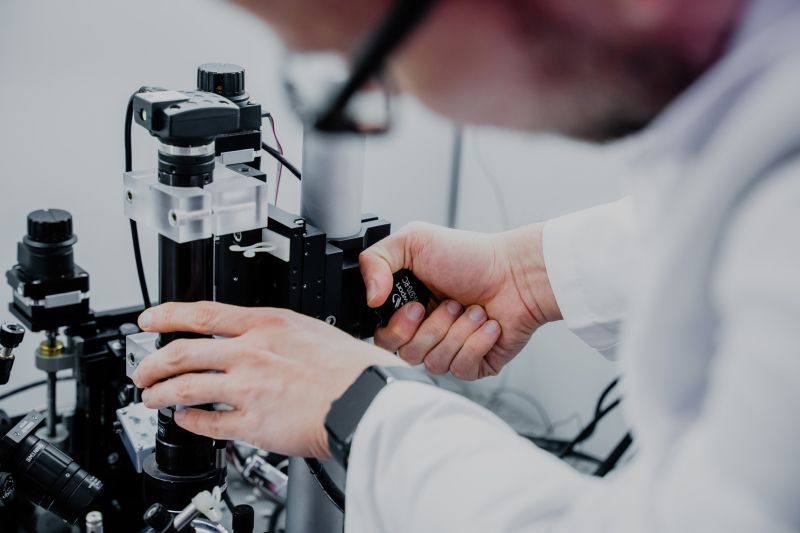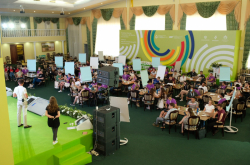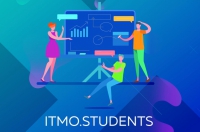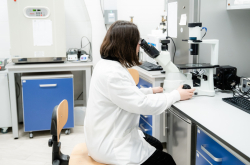This year, the Advanced Engineering School (AES) has welcomed its first 55 Master’s students, coming from three educational programs: Chemistry and Artificial Intelligence, Machine Learning Engineering, and Digital Systems Engineering. Over the course of two years, they will receive the necessary knowledge and skills to work on industrial and entrepreneurial projects and launch them onto the market. In their first year, the students split into interdisciplinary teams; in the second – choose a specialization. They can choose to become engineer intrapreneurs, broker engineers, data engineers, or expert engineers. Simultaneously with their primary educational programs, the students will attend classes held by mentors – representatives of partner companies. There, they will learn about digital competencies, data-driven approaches, research procedures, investor and customer scouting, and the development and management of innovative technologies.
To help them try their hand at assembling and managing teams, as well as developing their own products, a special scholarship competition was organized for first-year Master’s students enrolled at AES. Its 20 winners will receive a stipend of 30,000 rubles per month, with 6 others receiving 10,000 rubles per month – all to help them develop a product and produce an MVP within a year.
For second-year Master’s students, as well as those in PhD programs, the school has organized another grant contest, one called Master of Data Product Development. Its main goal is to support projects that create, scale up, and introduce data-driven products into foreign markets.
A condition of the contest was that participants should assemble an interdisciplinary team that includes at least three ITMO students. Each project was to be headed by an ITMO student studying in a PhD program or the second year of their Master’s studies, as well as involve a member of ITMO staff as the research supervisor; a project’s key executors were to include Bachelor’s, Master’s, and PhD students of the university. Finally, each team was to possess applied research or experimental developments in the fields of photonics, physics, chemistry, biology, materials science, or biotechnologies that they could use to produce an MVP.
Following an online stage, which took place on September 26-30, and a series of project presentations, ten interdisciplinary teams received grants of up to 1.5 million rubles for the rest of 2022. We spoke to some of the winners about their projects and how they plan to develop their ideas further.
Read also:
Creation of Advanced Engineering School at ITMO Approved by Russian Government
ITMO’s Advanced Engineering School Welcomes Its First Students
Dmitry Gayfullin
A second-year Master’s student at the Faculty of Infocommunication Technologies
Our project was a response to requests from oil and gas companies Gazprom, Tatneft, and Lukoil, all of which have a great amount of video footage from oil fields, factories, and gas stations. Processing this footage can help improve workflow at these facilities and is normally done by developers from these companies or through outsourcing. However, not every company has a dedicated development team and at the same time there is no product that could do the job for them.
Our platform will become such a product that can be tweaked to the needs of each client or partner. It will have the functions common in the industry, such as the ability to monitor individual protective gear, identify defects and potential accidents, and more. The platform is based on computer vision modules along with additional modules that we are developing for implementation into a client’s software and accumulation of business metrics.
There are six members in our team. I am the head of the project; Vladimir Fomenko, a lecturer at the Institute of Applied Computer Science, is our research supervisor, and another lecturer, Oleg Shatov, who is also a first-year Master’s student at the institute, is responsible for business development and investment. Finally, our key executors are Master’s students Anna Efimova, Maksim Skibin, and Nikita Sidelnikov, who are developing the software modules. Everyone on our team has experience in development and implementation of computer vision solutions.
Now we are developing an MVP, which will include a general infrastructure of the platform and test recognition modules. We are also in touch with potential investors and clients, who give us specific tasks for which we can provide solutions. One of the ways to scale our platform is by expanding the range of tasks accomplished by the system and adding more computer vision modules.
Alexander Ulesov
A first-year PhD student at ITMO’s ChemBio Cluster and head of SCAMT’s Startup Factory
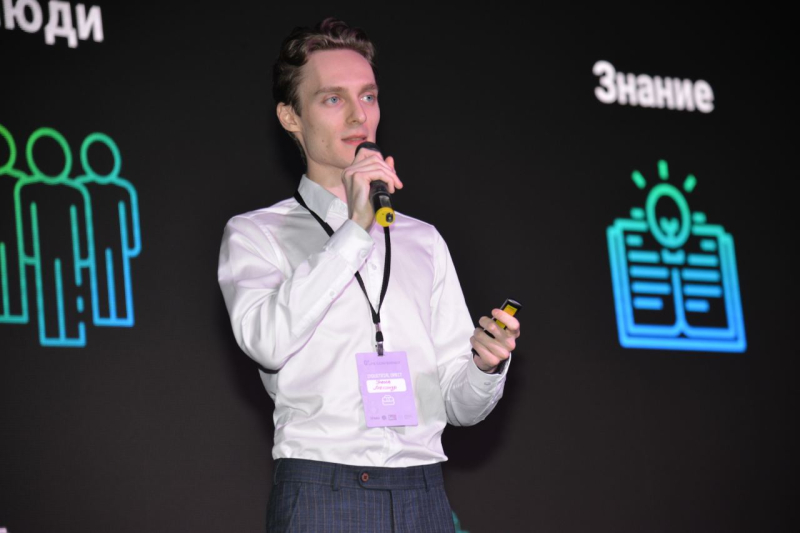
Alexander Ulesov. Photo courtesy of the subject
Today, mainly invasive methods are used to measure blood glucose levels: you need to pierce your finger, put a few drops of blood on a test strip and insert it into a glucometer that will display the result. This kind of testing is rather painful and can’t track glucose levels in real time, which means that if it changes, for example, at night, the patient won’t be notified to take their medicine timely. Delays in this case might lead to a coma or even death, which is why continuous blood glucose monitoring devices are in high demand.
Our minimally invasive wearable glucometer with an accompanying digital data processing service aims to answer this demand. First, our system will be monitoring real-time blood glucose fluctuations, sending the data to the user’s smartphone, and alerting them, their doctors, and their family about any critically dangerous values.
Moreover, the intelligent system at the core of our service will analyze the user’s behavioral and personal data to see how they interact with their glucose levels. It will then issue recommendations based on its findings. For instance, the system might send a notification that intensive physical activity can cause blood sugar levels to plummet, or suggest adjusting a user’s diet. We believe that these recommendations can help diabetes patients fulfill their prescriptions.
Our team includes seven students from different ITMO faculties; three of them are responsible for software development. We’ve assembled our team from among the participants of SCAMT Startup Factory, who were qualified and motivated to join the project.
We are currently developing prototypes for the device and the digital assistant so that we can test them both in spring 2023. By summer 2023, we are planning to have a full-scale MVP and secure funding from a major strategic investor.
Ilya Kuzminov
A first-year PhD student and an assistant at the Faculty of Biotechnologies
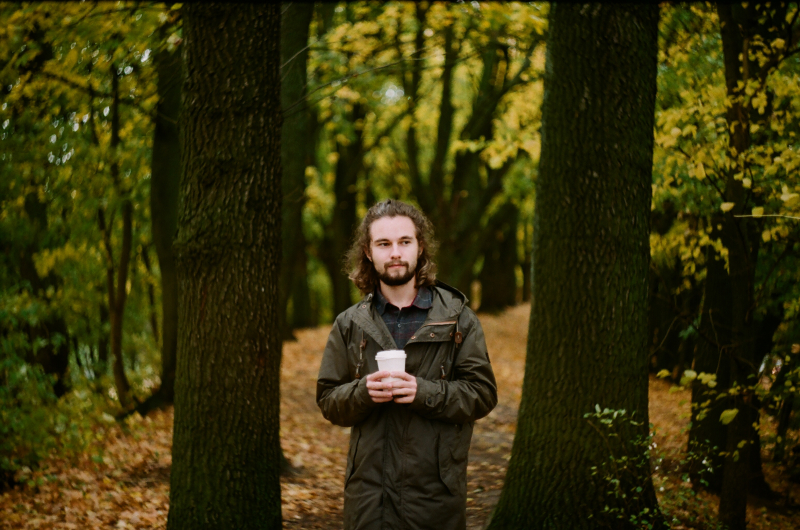
Ilya Kuzminov. Photo courtesy of the subject
What were your three least favorite subjects at school? Sadly, recent surveys in Russia show that chemistry is among the most unappreciated subjects, mostly because of undermined expectations: you come into class awaiting impressive bangs and reactions, while in reality you have to solve a bunch of chemistry tasks. Add to that the fact that you can’t actually interact with your objects, atoms and molecules, which requires you to work even harder to grasp the learning material. It’s not really surprising then that many people treat chemistry as a boring and overly complex subject – and no one would like that, which is why few students would take the chemistry test required to enter a specialized Bachelor’s program.
Our solution to this problem is Ched, an online application that would benefit firstly school students, but also their teachers and anyone who wishes to learn some chemistry. Compared to its competitors, our app boasts a user-friendly interface, top-notch features, and engaging educational content. And we are planning to keep getting better and improve our approaches to teaching chemistry by analyzing the way our users interact with the app – for instance, we will keep track of the user’s eye movements with an eye tracker. This would allow us to gauge the way our users engage with the visual content we use to make the learning process more enjoyable.
We have quite an extended team. I am the project manager and I also oversee the eye tracking aspect of the app; Ekaterina Galasheva, the head of the Center for Educational Neuroscience, is responsible for psychometrics research, while Polina Belimova, an assistant at the center and an engineer at the Center for Usability and Mixed Reality, works with usability; Alexey Vokhmin, a fourth-year student at the Faculty of Software Engineering and Computer Systems, programs our app. We have invited two other collaborators, Polina Poluektova, an expert in entrepreneurship and technological brokering, a first-year Master’s student at the Faculty of Technological Management and Innovations, and designer Mikhail Kaynov.
For mentorship, we turned to Mikhail Kurushkin, the dean of the Faculty of Biotechnologies, who has demonstrated that VR technologies can increase the efficiency of school chemistry classes by 20% in his interdisciplinary project.
We have already designed our study and we are now working on front- and backend development, assembling a prototype, and waiting for the eye tracker to be delivered. At the same time, we are analyzing the market in terms of economics and design, as well as developing stimuli (objects, typically used in psychological experiments, such as cards with images – Ed.).
